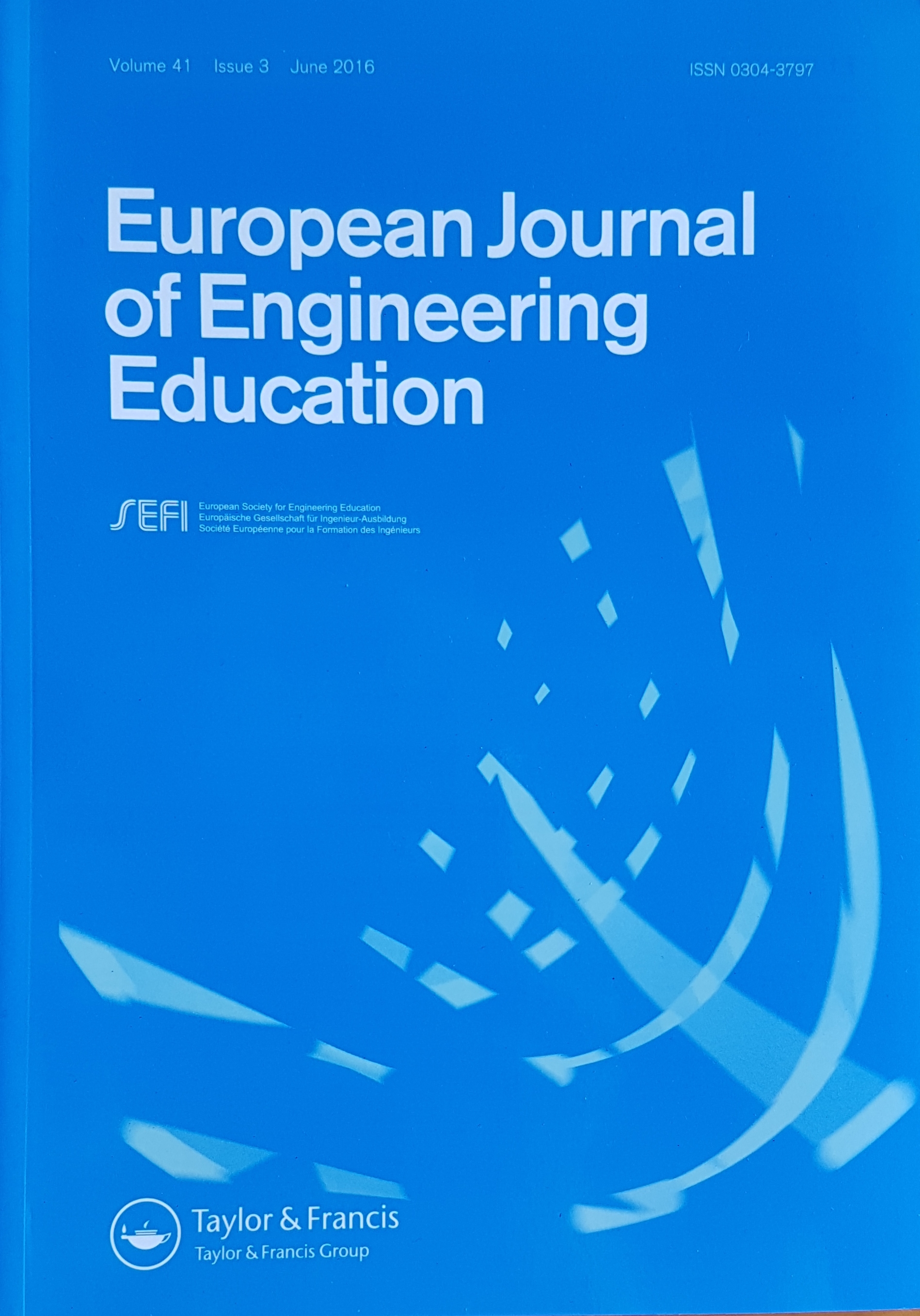The European Journal of Engineering Education (EJEE) is the official journal of SEFI and it is is free to SEFI members. Individual members of SEFI from the SEFI member institutions receive an online access to the EJEE.
- scientific publication focused on specific aspects and developments in Engineering Education in Europe.
- instructions for submitting papers or subscriptions are here.
- Informaworld gives access to the whole list of contents of past published EJEE’ issues.
- Published by Taylor & Francis Group, P.O. Box 25, Abingdon, Oxfordshire OX14 3UE (UK)
Editor in Chief

Kristina Edström
KTH Royal Institute of Technology
Stockholm, Sweden
ejee.editor@gmail.com
Citation Metrics
For 2023, the Journal Impact Factor (Clarivate) is 2,0 and the CiteScore (Scopus) is 7,3.
Journal Impact Factor (JIF) is calculated as the average number of citations during 2023 to papers published in 2021 and 2022. Citations are counted if they are from sources that themselves have a JIF. The CiteScore is calculated in the same way, but with a four-year window from 2020 to 2023 and counting citations from sources that are indexed in Scopus.
The differences in these indices for European Journal of Engineering Education reflect that papers in this field are cited for a long time, as well as the fact that many more educational publications are indexed in Scopus.
Deputy Editors
Matheus de Andrade – UCL, UK
Jonte Bernhard – Linköping University, Sweden
Shannon Chance – TU Dublin, Ireland
ASSOCIATE EDITORS
EDITORIAL BOARD
Author benefits:
- Journal issues are published six times a year in electronic edition.
- In addition to regular issues, the journal also occasionally publishes special issues on specific themes of general interest.
- All papers published in this journal have undergone a rigorous peer review process, based on initial editor screening and anonymous double-blind reviewing by independent scholars.
- Papers are abstracted and indexed in a number of databases, among them Scopus, Educational Research Abstracts, Cambridge Scientific Abstracts.
- Our Author Services page provides tips for further promoting your research on social media and through your network. This includes 50 free e-prints to share with anyone you wish.
- Quickly and easily track the impact your paper makes with the help of Authored Works.
